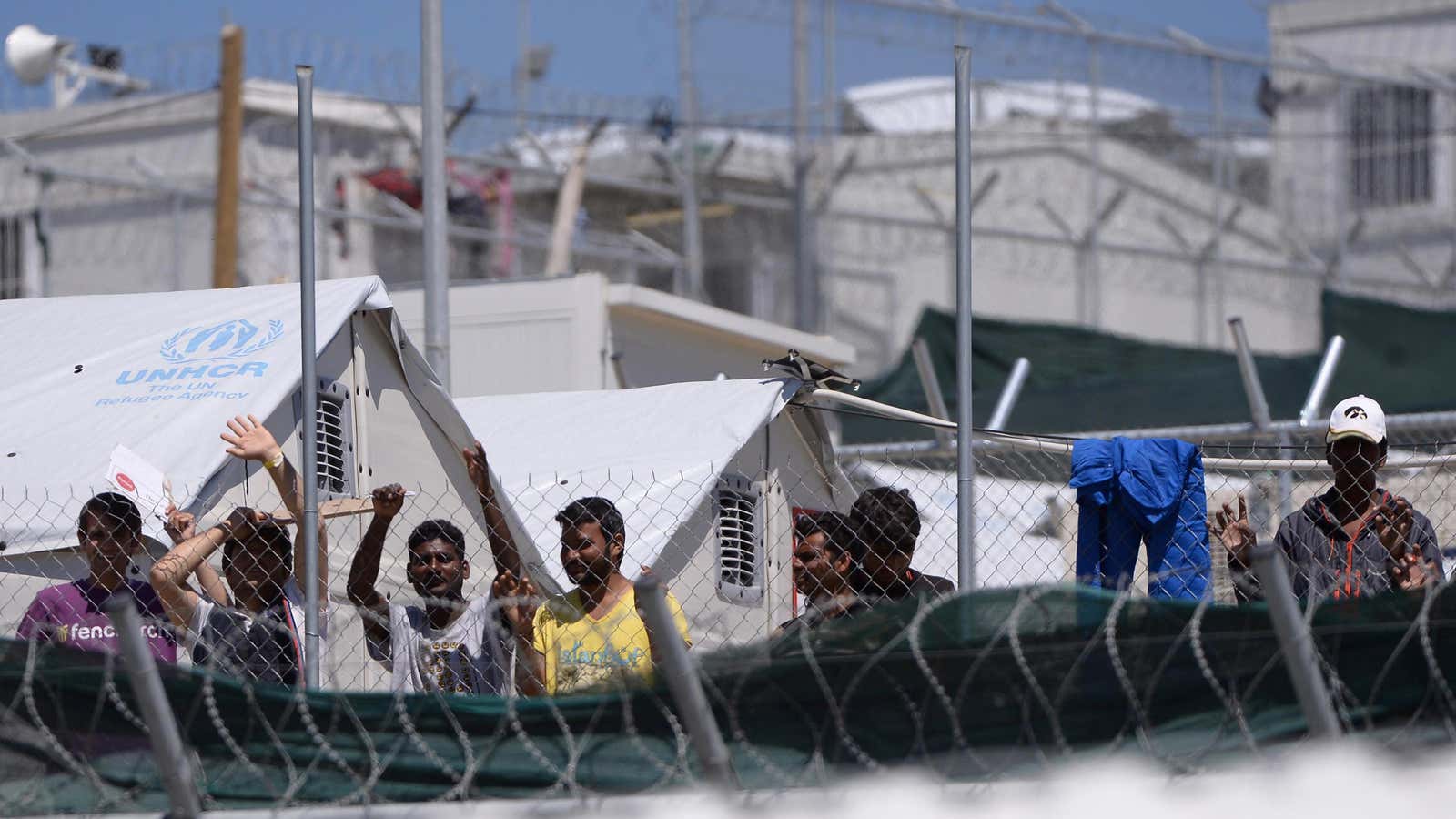The need for family planning among migrants and refugees is well known (pdf). This population is at a higher risk of unwanted pregnancies and has less knowledge of, and access to, contraception. For women living in refugee camps, unwanted pregnancy adds hardship to an already terrible situation, and yet reproductive issues are hardly addressed as a priority in refugee camps, or conflict areas.
Currently, birth control options are scarce for refugees both in Turkey and Greece. According to the United Nation Population Fund (UNFPA), there were half a million pregnancies in 2015 among Syrian women living at home and as refugees. It its guidelines, the United Nations High Commission for Refugees (UNHCR) highlights how providing reproductive health care to refugees is “crucial for the mental and social well being of any individual” (pdf, p.9), but providing family planning on the ground remains a challenge.
DKT Turkey, an arm of DKT International, a social marketing organization focused on providing affordable condoms and other forms of birth control, is trying to help. Since 2009, it DKT has marketed condoms, IUDs, and birth control at lower prices than those provided by multinational brands by producing and importing its own products.
“Because the [Greek] government is focused on other subjects,” Yakup Aydogan, director of DKT Turkey, told Quartz, “family planning for refugees is not a priority.” He says DKT was contacted by Circle of Health International (COHI), an organization providing relief to refugees in Lesbos, in January and agreed to provide 10,000 condoms for free—but shipping them to Lesbos was a long and costly process: from İzmir, where DKT is based, to Istanbul, then onto to Athens and, after custom clearance, Lesbos. To speed it up, the shipment was sent to an address in Ayvalık, a coastal town in Turkey, where it was picked up by a member of COHI, who travelled back with all 10,000 condoms via ferry to Lesbos, where the organization began distributing them in February.
“We have millions of refugees in Turkey, too,” says Aydogan, pointing the lack of of contraception for migrants settled in Turkey. Earlier this year, he says, DKT received a similar call to COHI’s from a doctor working in a camp Kilis, Turkey, near the Syrian border: she asked for IUDs, and DKT so far sent 1,000.
It’s a drop in the sea, considering that over half of the hundreds of thousands of asylum seekers in Europe are between 18 and 34 years old. Children of refugees and migrants face great dangers, including that of ending up in trafficking and slave trade. According to Europe’s police agency Europol, at least 10,000 refugee children are missing.
